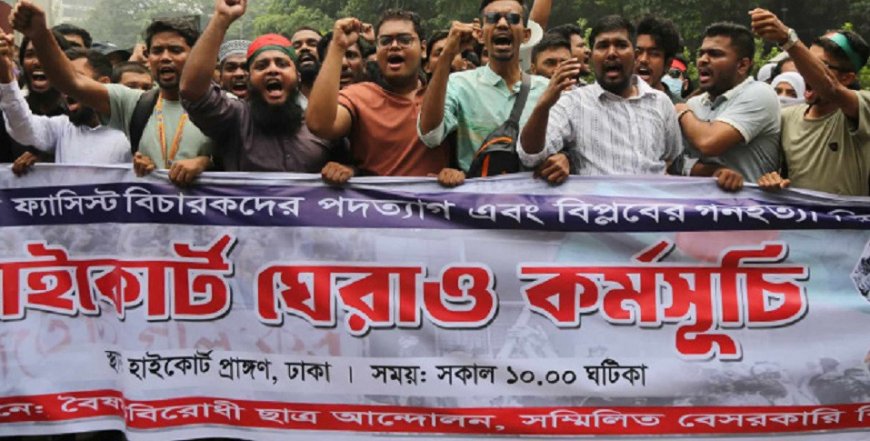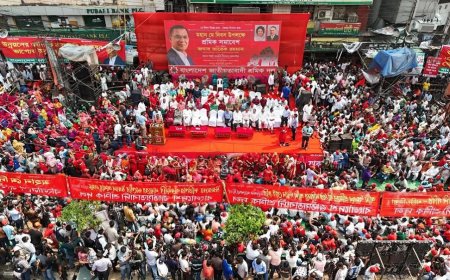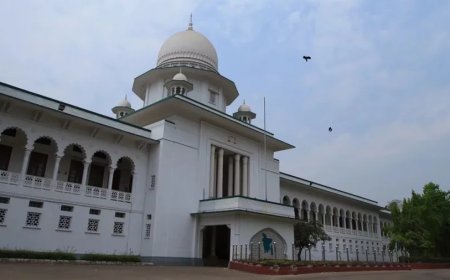Students surround HC, demanding resignation of 'pro-AL fascist judges'
Students surround HC, demanding resignation of 'pro-AL fascist judges'

A group of students launched a protest at the High Court premises, demanding the resignation of judges they labeled as "pro-Awami League fascist judges." This demonstration, which began around 11:20 am, was part of a broader movement involving students from various private universities. Their call for action was echoed by a group of lawyers who also gathered in front of the High Court, supporting the same demand.
The protest was part of the ongoing Anti-Discrimination Student Movement, which has been vocal against what they see as judicial bias favoring the ruling Awami League government. The group alleges that some judges have made decisions aligned with the government, undermining judicial independence and fairness. These accusations have resonated with a portion of the student population, who have taken to the streets to demand reform in the judiciary.
Another group of students positioned themselves near the Raju Memorial Sculpture at Dhaka University, preparing to join the march toward the High Court. The movement was orchestrated by prominent student leaders, including Sarjis Alam, one of the main coordinators of the Anti-Discrimination Student Movement. Sarjis had called for the High Court siege via a Facebook post, urging supporters to gather at 11:00 am. His post explicitly stated the movement's demand for the resignation of judges they view as being aligned with the Awami League's interests.
In support of the movement, another coordinator, Hasnat Abdullah, posted on social media the previous evening, encouraging students and activists to join the demonstration. The protest reflects broader discontent among sections of the student population regarding political influence in the judiciary. They argue that such influence jeopardizes democratic values, transparency, and justice in the country.
The High Court siege is one of the more visible actions taken by the student movement, reflecting their growing frustration with perceived government overreach and the lack of judicial independence. The protestors see their actions as part of a larger struggle for democratic rights and judicial fairness in Bangladesh. The involvement of lawyers in the protest further underscores the seriousness of their concerns, indicating that the issue extends beyond just the student community.
The protest has attracted significant attention as it challenges the judiciary's integrity, calling for reforms that ensure impartiality and a separation of powers. The students have vowed to continue their campaign until their demands are met, adding to the growing political unrest in the country.
What's Your Reaction?




















































































